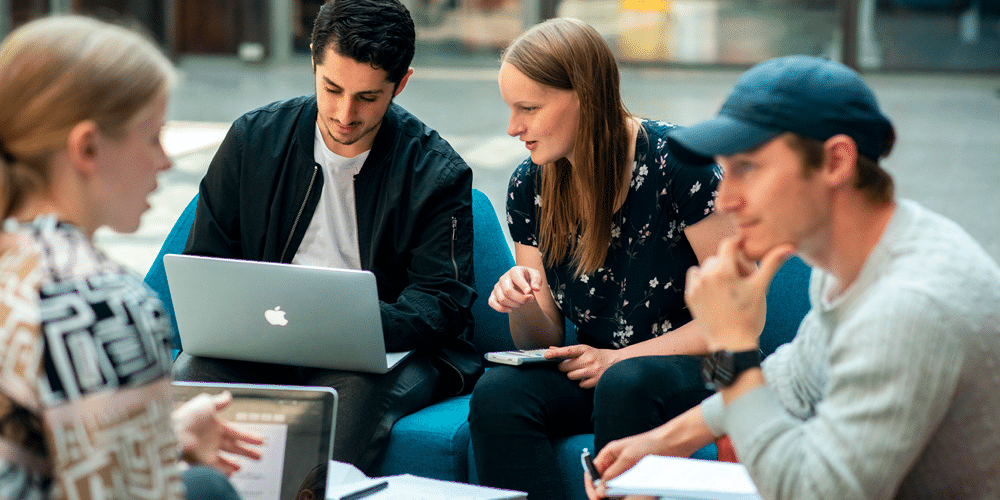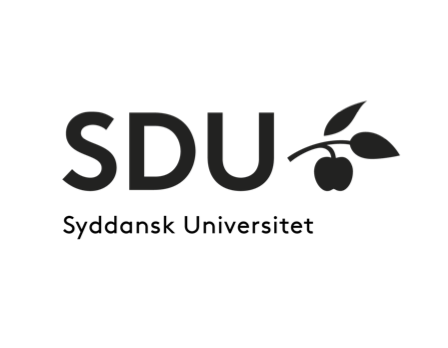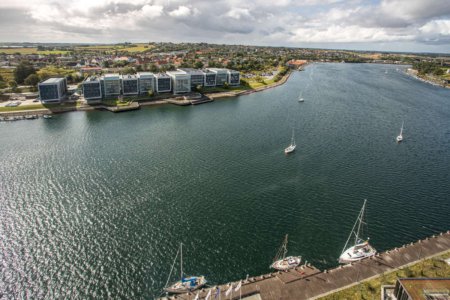Gonçalo Nuno Bastos Dos Reis Morais, 23, discovered his passion for economics when he was eight. That flash of insight came when he was playing the board game Monopoly — and continued throughout high school. Morais joined the economics track, deepening his understanding of the social science that focuses on the production, distribution, and consumption of goods and services. He loved analysing the choices that individuals, businesses, governments, and nations make to allocate resources. Most importantly, he saw how important this discipline was.
From pricing structures and fluctuating interest rates to the impact of government policies on businesses, these are concepts Morais sought to know more about. Driven by his enthusiasm for the subject and encouraged by one of his undergraduate professors in his native Portugal, he decided to pursue an MSc in Economics at the University of Southern Denmark (SDU). “I wanted to pursue a master’s degree that would allow me to delve deeper into the subject matter, avoiding repetition of concepts. I sought a continuation master’s degree, and SDU’s programme was an ideal fit for my aspirations,” he says.

SDU prepares students of today to be tomorrow’s top economists. Source: University of Southern Denmark
SDU students find Denmark a safe, happy and friendly country with a strong notion of fairness and equality. Where better to get an outstanding education than one of SDU’s campuses in beautiful, scenic Odense? As the third largest city in Denmark, only 1.5 hours from Copenhagen, it has ample housing options and a lively atmosphere with no shortage of cafes and shops to discover. Despite its size, Odense feels like a safe village with easy access from SDU’s campus via a frequent tram service.
For all the town’s things to do and see, campus is just as or even more compelling to students like Morais. And that’s because SDU gets aspiring economists to think about the world — and how they can positively impact it. It trains them to find solutions in real-world contexts. It ensures every student evolves into a smart, capable, and open-minded economist — as best seen through the impact of its two-year MSc in Economics.
In the first year, students may explore advanced microeconomics, advanced macroeconomics, microeconometrics, industrial organisation, and advanced economic evaluation — all of which are taught in English. Whichever course they take, each empowers students to promote welfare and progress in society while offering different and enduring avenues for professional success.

At SDU, the MSc in Economics is designed to reflect the real world. Source: University of Southern Denmark
At SDU, students prepare for a career, not only for their first job. The MSc in Economics equips students with the main tools of a professional economist and offers research-based teaching within economics, econometrics and data science. This way, students receive a high-quality education that transforms them into well-rounded experts in state-of-the-art economics — the kind who have respect for and learn from related disciplines, can recognise and understand societal trade-offs, can point to realistic policies and can communicate clearly to stakeholders.
Student Miriam Lykke Jensen agrees. “One aspect that stood out in all of my classes was the quality of the lectures. I remember my microeconomics course during the first semester — I was genuinely impressed after each class,” she says. “The instructors were deeply passionate about the subject matter, and their enthusiasm rubbed off on me. Additionally, all of the courses I took piqued my interest because I could clearly see their relevance in understanding economics and society as a whole.”
Here, students don’t just learn traditional economic theory, but also contemporary issues that are relevant to current trends in teaching and research. The curriculum explores topics such as the pandemic, war, inflation and so on. Professor Thomas Barnebeck Andersen does this consistently.
“I teach a course on ‘Macroeconomics for Global Investment Strategy,’ where students learn to analyse various macroeconomic, political, and geopolitical factors influencing global markets,” he says. “As the course content goes beyond traditional economic theory, I draw insights from multiple disciplines such as political science, geography, technology, and demography. For example, I include a book on geopolitical strategy in the curriculum, emphasising the constraints policymakers face, and illustrating the intersection of economics and geopolitics.
When discussing the role of the US dollar in the global economy, Andersen gets students to examine China’s strategies and ambitions. “To what extent does China seek to dethrone the dollar in pursuit of geopolitical goals?” he says. “Similarly, understanding long-term growth prospects requires insights into energy dependence. When looking at things through this lens, the US economy looks very strong. Such examples illustrate how broader, multidisciplinary knowledge is crucial in economic analysis.”

SDU professors explore key trade-offs in economics, such as how a central bank balances inflation control and economic output, including the effects of over-tightening and under-tightening interest rates. Source: University of Southern Denmark
The Department of Economics stands out by offering students direct access to professors, to the extent you’re on a first-name basis with them. While the university is known for its world-class research and top scholars, these professors still prioritise making time for students and actively engaging with them.
“The professors treated me as an equal, encouraging questions and showing great patience,” Morais says. “Ryan, my professor and supervisor, went above and beyond to explain things and even reached out to check on my progress. Christian, my thesis supervisor, was easy to get in touch with and provided many valuable feedback despite his high position as Head of Studies and vice head of the department, making me feel supported and welcomed.”
Top economists often visit to provide more enriching insights to SDU students. These include the chairman of the economic council, central bank governors, and heads of consultancy units, among others. These talks are often followed by lunch, providing opportunities for students to interact and engage with the guest speakers.
The best part? Students can apply for jobs within the department, just like Morais who started working there in February 2022.
“Teaching for a year and a half significantly improved my understanding of economics. They considered my request to work closer to home, allowing me more time to focus on my thesis. As a teaching assistant, I also received a pedagogical course to enhance my teaching skills. The department evaluates both grades and relevant teaching experience,” Morais says.
Jensen now feels more prepared to progress to a PhD. “This economics programme had a lot of focus on research and understanding it. Without this programme, I would not have been prepared at all to do a PhD,” she says.
Click here to learn more about the University of Southern Denmark and its programmes.












